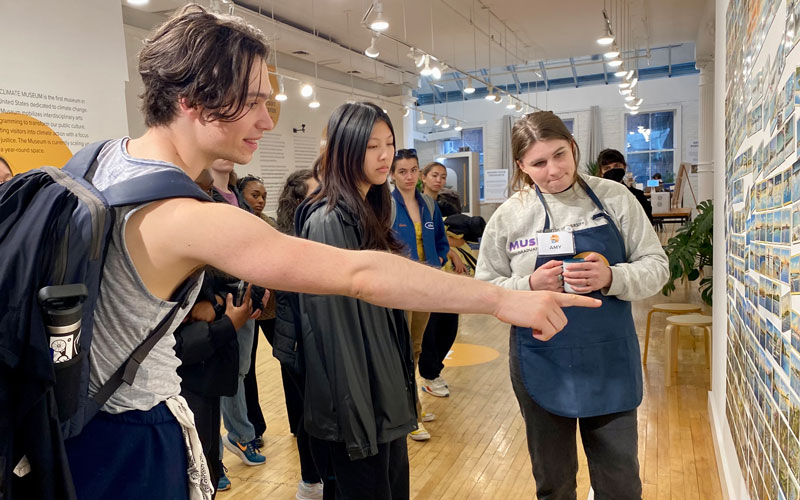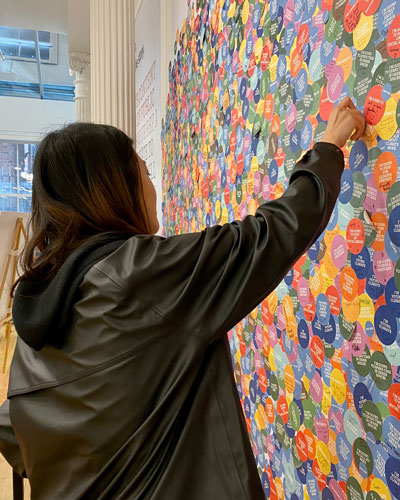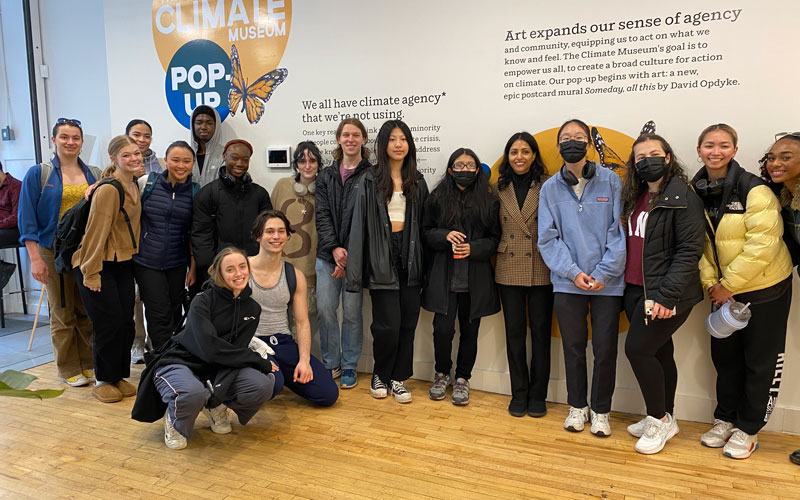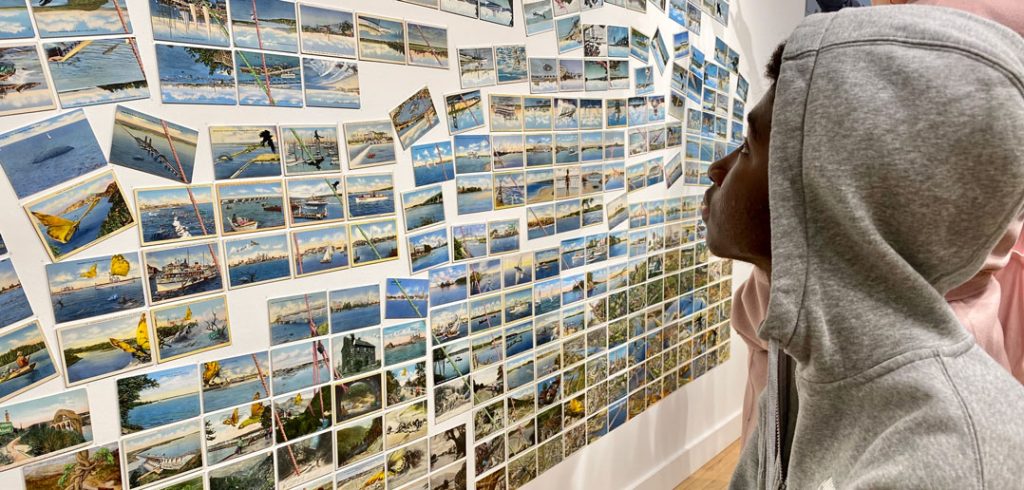That’s why Mehrotra, an English and disability studies professor, wanted to take students in her Pop Culture and Climate Change and Environmental In/Justice, Climate Change, and Disability courses to visit the Climate Museum Pop-Up in SoHo. She felt it would help them understand the issue better and also learn about some tangible action steps they could take.
“When you go and see something in person, it starts becoming real,” said Mehrotra. “And reading about climate change can be really dark and gloomy, so then how can I keep their spirits high?”
She said she also wanted them to see “that we are the ones who can bring the change here.”
The museum aims to use the “power of arts and cultural programming,” to help shift the conversation toward “climate dialogue and action, connecting people, and advancing just solutions.” It features an art exhibit, data points, and reading options in addition to a wall filled with action steps, a postcard writing area, and even a recording booth, where participants could share their stories, perspectives, and more as it relates to climate change. If they signed a release, the information could be used for an upcoming documentary or just as a part of the museum’s research and outreach efforts.

Mehrotra’s students said that the exhibit helped provide inspiration and motivation.
For Gabriel Sharp, a first-year student at Fordham College at Lincoln Center, the trip reignited his passion for environmental issues.
“My biggest takeaway is that climate action is actually really accessible for me, and something that’s well within my power,” said Sharp, who came to Fordham from Seattle, where he was involved in the Sunrise Movement—a youth climate organization. Since he had to leave that behind when he moved to New York he was happy to find another way to take action on the issue. Sharp, who spoke while writing a postcard, said that he planned to get back involved in efforts like the Sunrise Movement here.

Others said that it helped them learn about how many other people cared about environmental and climate issues.
“We talk a lot especially in Professor [Mehrotra]’s class about our role as Gen Z, and especially first-years at Fordham, what are we actually facing? And as scary as it is, it felt like a breath of fresh air to see the statistics and see that there actually are people out there who care, it doesn’t feel so alone and daunting,” said Karina Ruiz, a first-year student at Fordham College at Lincoln Center. “It’s motivating.”
Many filled out postcards calling on state and federal legislators to support climate-related policies and laws, while others wrote to institutions, asking them to divest from fossil fuel industries.
Kellen Zeng is a sophomore from the Gabelli School of Business at Rose Hill who is originally from New York City and involved in climate advocacy outside of school. She hopes the visit will inspire students to act.
“We’re taking a class, we’re learning much about climate change, and so I just really hope that all of my peers at Fordham and everyone who visits here actually takes the next step of doing something about it,” Zeng said.

Zeng said that she also hopes her classmates get involved in environmental and sustainability efforts on campus, such as those being coordinated through the Center for Community Engaged Learning’s Laudato Si action plan.
Emmanuel Okeke, a first-year student at Fordham College at Lincoln Center, was particularly captivated by the postcard display from artist David Opdyke, which features postcards from around the U.S. Opdyke added elements to each one to depict potential effects of climate change, such as a postcard featuring coastlines that were now underwater.
“This really has gotten to me,” he said. “I wish I could take it home with me—there’s so many details, I feel like you can spend hours just analyzing each one.”
Across all of the cards, Opdyke drew ropes, aiming to show how all of these areas and issues are connected. Okeke said this made him think about climate change both in the U.S. and his home country of Nigeria, particularly the impacts of decades of colonialism and other extractive practices by Western countries, such as drilling oil.
“They make all this money—we don’t make money from this but our people are dying because of the oil and pollution,” he said.
“I was looking at [action items in the exhibit] and it was like ‘oh, vote climate’—I don’t even know if I can vote climate [in Nigeria]. I don’t think many of the politicians care about climate, which is sad,” he said, noting that’s partly because “you can only care about climate when you have addressed a few other glaring needs.”



